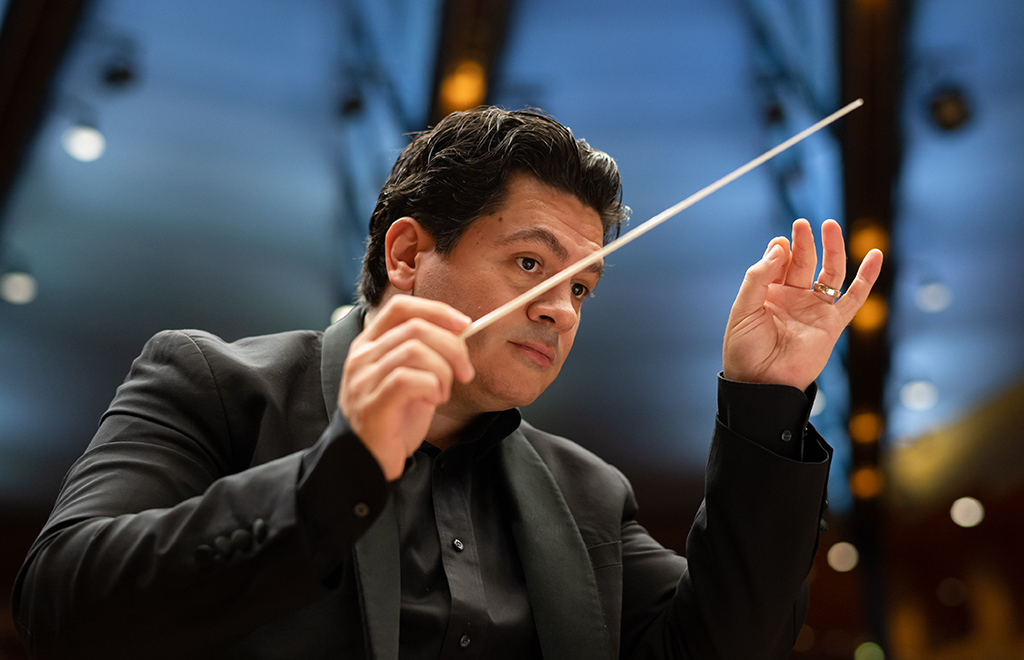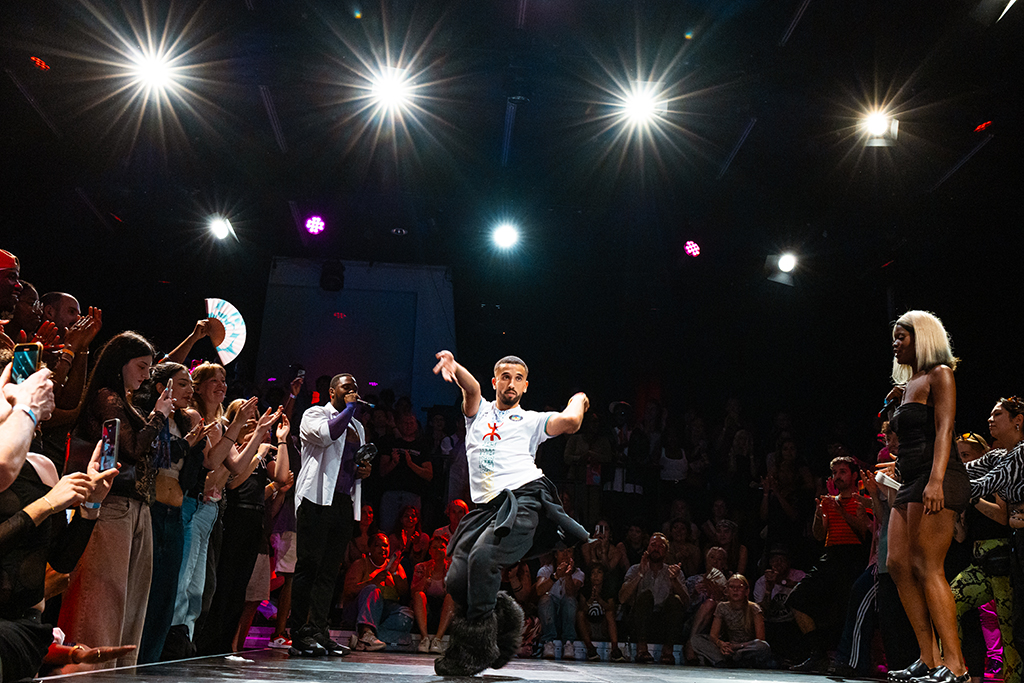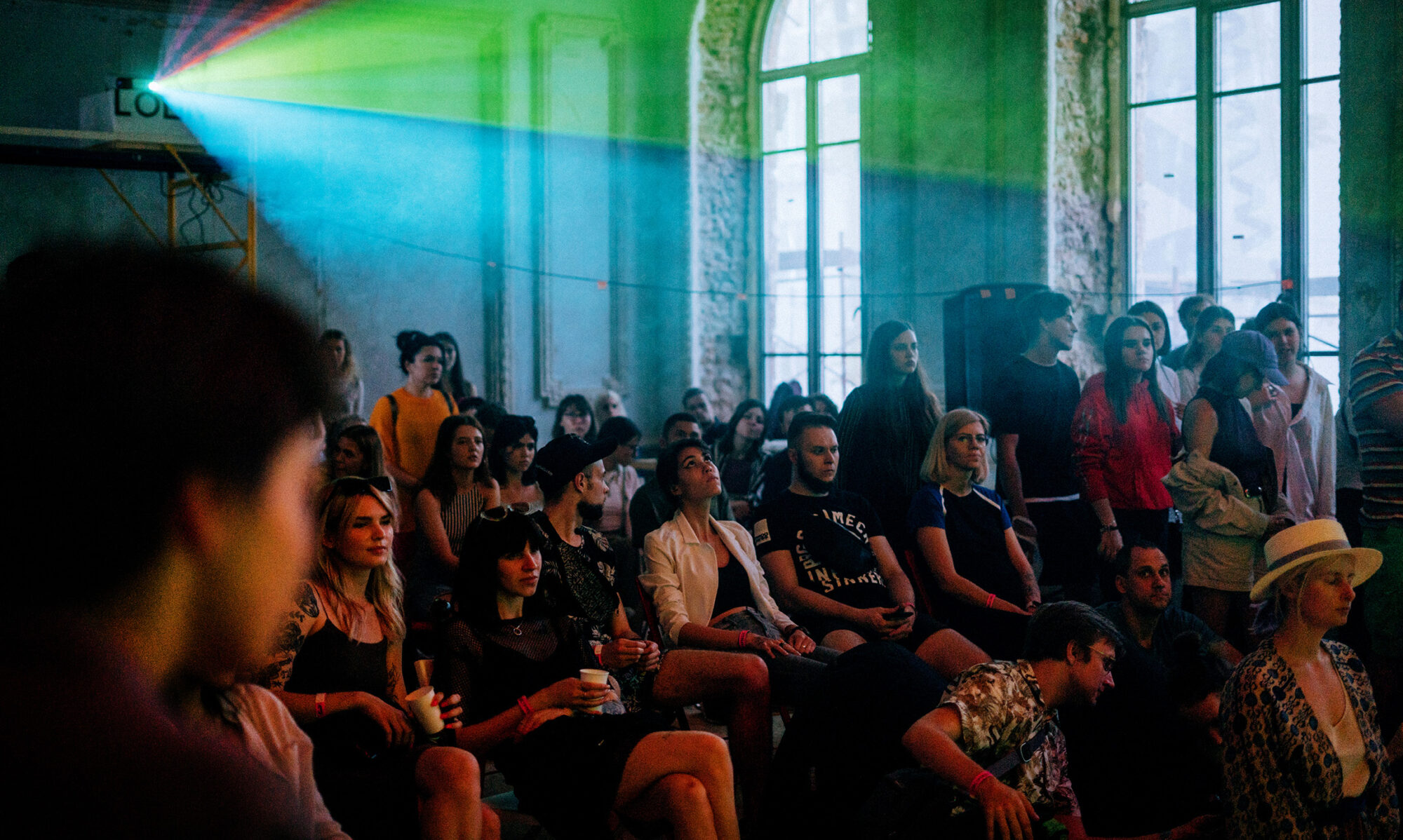Breaking habits

Cristian Măcelaru is the Music Director of the Orchestre National de France and serves as the Artistic Director and Principal Conductor of the Interlochen Center for the Arts’ World Youth Symphony Orchestra. He is also the Music Director and Conductor of the Cabrillo Festival of Contemporary Music and the Chief Conductor of the WDR Sinfonieorchester in Cologne, a role he will hold through the 2024/25 season before continuing as Artistic Partner in 2025/26. Additionally, he is the Music Director Designate of the Cincinnati Symphony Orchestra, where he will begin his tenure as Music Director in the 2025/26 season.
I feel I am fulfilling a sense of responsibility to Romanian musical life by directing the Enescu Festival. About 15 years ago, when I started my career as a conductor, I remember making a very clear decision to invest as much time as I could in Romania. There are interviews and videos with Sergiu Celibidache where he criticises Romanian musicians for allowing the artistic quality to diminish in his time. My take was always this: how much should one give of themselves to maintain an artistic, clear focus, and to give an example of what artistic excellence in Romania can mean?
Celibidache was an extraordinary conductor. He excelled in creating his own concept of sound. Unfortunately the political system prevented him from doing more in pre-’89 Romania. I never wanted to look at myself one day and say I could have done more but I did not, which is why I have become so involved as a conductor coming back and giving as much of my time as I can to Romanian orchestras.
I studied in Houston at Rice University. I was actually a violinist with the Houston Symphony Orchestra and I was becoming frustrated because I disagreed more and more with the liberties that were taken, a trend which I observed in our industry. I felt too many changes were done to the music that was on the paper, and which the composer laboured over each gesture, each phrase. My wife told me, ‘either you do it yourself or stop complaining about it’. And I said, ‘OK, I’m going to go back to school’. So I went back to school to study conducting with the great Larry Rachleff, who was perhaps the most influential conducting teacher on that side of the Atlantic.
I still try to make this point to orchestras. Over time I have become a bigger fan of the eraser than of the pencil. Not to erase traditions because I’m anti tradition, but because some traditions have started from misunderstanding the composer’s intentions or from facilitating a slightly easier way to perform that music. I think we are in an age where the orchestras are so good that we need not make it easier for them to perform. If you know Dvorak, Brahms or Beethoven we don’t have to take shortcuts anymore. I understand there was a time where this was necessary but musicians are superb these days.
Finishing a rehearsal of West Side Story by Leonard Bernstein recently I thought, when you look really closely at the dynamics Bernstein writes and who is responding and in what way, it is incredible. He was a fabulous orchestrator. His sense of counterpoint was extraordinary. This is why I became a conductor – to be the defender of the composer who depends so much on my advocacy. A composer writes a piece but becomes vulnerable in the process of giving themselves to us, and then we take it and change it. Who gives us that right?
This is just my own point of view. I don’t expect everyone to share it. Because I know there was a time when if a performer did not put their own imprint on a composition, they felt they were not doing their job. But my understanding today, and the challenge I give myself over and over is to find the way to maintain the integrity of each note the composer has composed yet in a way that is truly mine.
I became Artistic Director of the Enescu Festival in 2022, so not very long ago. It has changed a bit in recent years because the festival has brought artists and conductors and performers to Romania who then discovered a country full and rich in culture and talent. Guest artists made connections with Romanian musicians and they started being interested in coming to collaborate even outside the Festival. Also, many Romanian musicians have decided to return after studying in the West, which was not the case for about 20 years after the revolution of 1989. Before then, anyone that could escape, did. After the revolution, anyone that could find a job somewhere in the West ended up taking it. But now we are in a period where people have access many universities and conservatories outside Romania and then they return and bring the expertise and knowledge back with them.
The other and most important element in the improvement of the Romanian orchestral world was the creation a few years ago of the Romanian National Youth Orchestra. This was a concept that looked at addressing the issue of musicians who come out of conservatoires already disappointed that they have to take a professional orchestral job. A conservatoire trains everyone to be a soloist by default. When you are not successful at becoming one, and you get a job in an orchestra, even if it can be fabulous, you’re disappointed in yourself for not having achieved the aim of your training. But when you train to become a great orchestral musician and then you get the job, you are happy. It’s simple psychology. Our fabulous National Youth Orchestra system looked at improving the pipeline into the professional orchestra. I’ve worked with them from the very beginning. I took them on tour to the United States and they are fantastic. And now the ripple effects of those young musicians entering the work force in Romanian orchestras are very evident.
Away from Romania I now have three orchestras under my wing: the WDR Symphony Orchestra in Cologne, the Orchestra National de France and the Cincinnati Symphony Orchestra, all with very different traditions. There is a different concept of sound in each of them and I love the fact that I am challenged in this way. It forces me to become a better artist and it gives me the opportunity to become a more well-rounded musician. I refuse to become an expert in one thing in music because I’m interested in all music. I never want to pick one star to focus on, rather I want the whole galaxy.
It’s amazing to see the similar problems but the different solutions for orchestras. At Orchestre National de France we maintain the historical instrument traditions, we keep the French bassoon, which is a completely different instrument from what we use in America, and you have the French clarinet, not the German clarinet. The French flute and oboe school of playing is very different from the German. It’s fascinating to hear the same composer’s music and try to arrive at the same essence but to get to it has a completely different map with each orchestra. I don’t try to make them sound similar but I try to understand how the orchestras already have their own identity and then I shape the music with that in mind.
This takes me back to the festival. We have to get 4000 orchestral artists in and out of the hotels in Bucharest, one after another. I am myself performing with my French and German orchestras, amongst a total of over forty ensembles. They’re really great orchestras, and I want people to see the identities of these orchestras playing the music in which they are most expert. This is what I want for the festival in the future; to present the identities of each of the separate but very different orchestras from around the world.
Unfortunately when an orchestra is on tour usually they are encouraged to bring works like Tchaikovsky’s fourth or fifth symphonies: the familiar repertoire. But there is such a wealth of music around the world. Actually the experience of festivals is that if the audience trusts the festival, you will get them to listen to something different. I have also opened the door to include Romanian composers other than Enescu. They are valuable and important.
A festival comes with the built-in expectation that the audience will be exposed to something unique, not to the status quo. How many times will someone have the opportunity to hear a rare work live? I try to bring works to the festival so that it is innovative but maintains a balance of the traditional with the modern in ways that can engage all sections of the public. And the great thing about the Enescu Festival is that being biennial means that you have an audience who cannot wait to hear music. They have time to get over the last one before they get on to the next.
As a festival organiser, relevance is always at the forefront of my thought. I think we are in a time when the appreciation for classical music has not gone down – when you look at the numbers, it hasn’t – but the knowledge that it exists has gone down in the general population. Those that know classical music exists appreciate it at a level more intense than before. But the number of those that know has diminished because there is so much competition for entertainment.
For me it is important to be able to put classical music in a public square, in a format where people come to understand that the only difference between why they prefer popular entertainment is because popular music has created a formula where five or six chords are simple and easy to listen to. Classical music is defined by the elevated level that is complex and which requires a little bit more time from the listener to be able to understand and ultimately appreciate. If I can transmit this in a way that people understand, I have fulfilled my goal.
Interview by Simon Mundy
Festival Life creates shared moments of audiences and artists, eye-to-eye


